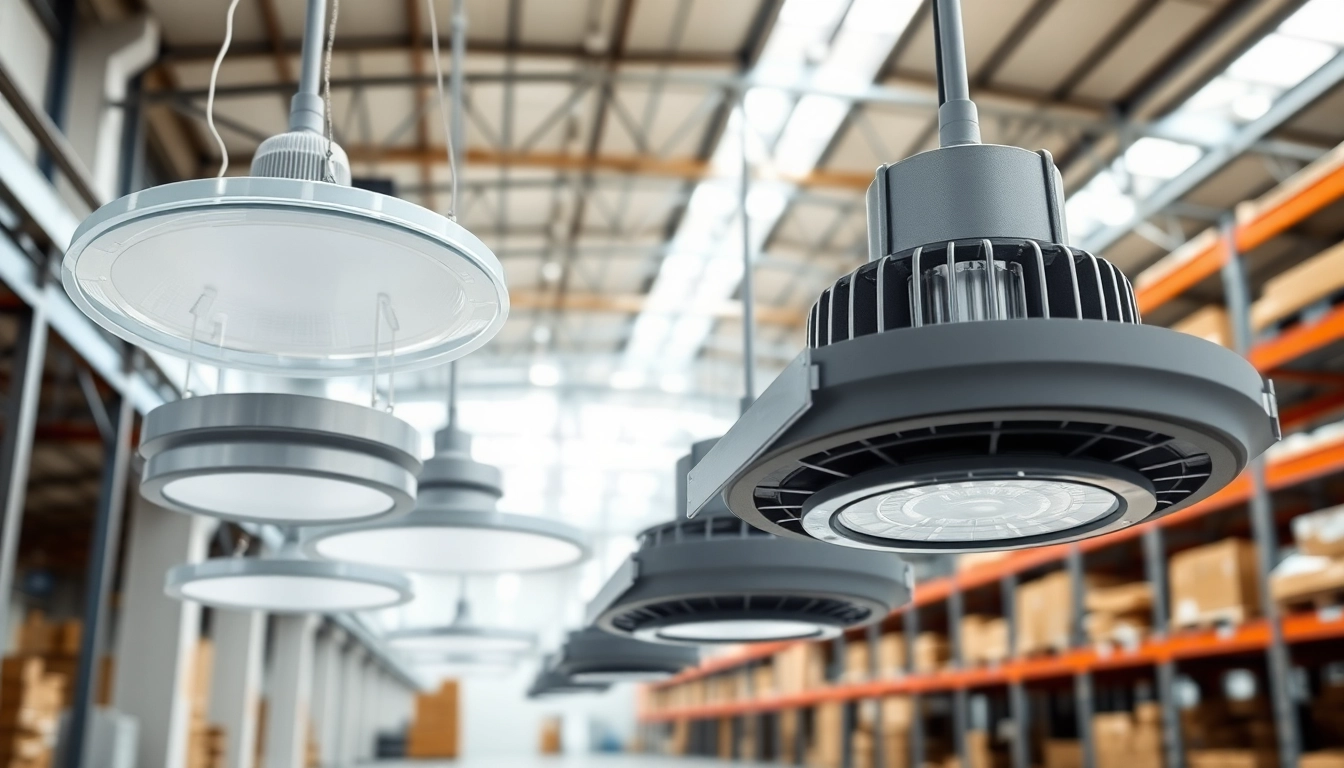
Understanding the Role of a Hinge Supplier
In the world of construction and manufacturing, the importance of a reliable Hinge Supplier cannot be overstated. These suppliers provide vital components that affect the functionality and durability of doors, cabinets, and various machinery. A quality hinge supplier plays a crucial role not only in design and manufacturing but also in ensuring that the supplied hinges meet industry standards and specific client needs. Understanding their role helps in making informed decisions when sourcing these critical components.
What Defines a Quality Hinge Supplier
A quality hinge supplier stands out through several characteristics. Firstly, they should offer a wide array of hinge types catering to various applications, allowing businesses to find the perfect match for their specific needs. Additionally, reputable suppliers maintain high standards of customer service, offering support throughout the procurement process, from inquiry to after-sales service.
Moreover, a solid industry reputation is indicative of a quality hinge supplier. This can be assessed through reviews, case studies, and endorsements from previous clients. Finally, transparency regarding manufacturing processes and materials guarantees reliability. Quality suppliers are often committed to ethical sourcing and sustainable manufacturing, gaining trust from their customer base.
Importance of Material Selection in Hinge Quality
The materials used in hinge manufacturing directly impact their performance and longevity. Common materials include stainless steel, brass, aluminum, and various polymers. Each material brings unique properties that are essential depending on the intended application. For example, stainless steel is favored in environments prone to corrosion, whereas brass offers aesthetic appeal and moderate strength.
Careful selection of materials also hinges on the expected load and usage frequency. Heavy-duty applications require robust hinges made from high-grade metal, while light-use scenarios may allow for lighter materials. A knowledgeable hinge supplier should be able to guide clients through the decision-making process, ensuring that material choice aligns with performance needs and budget constraints.
Common Applications for Various Hinge Types
Hinges find application in an expansive range of industries, each with specific requirements. From residential settings to industrial applications, understanding the common hinge types and their uses is crucial:
- Residential Door Hinges: Typically made of steel or brass, these hinges are used for interior and exterior doors.
- Heavy-Duty Hinges: Suitable for industrial doors and heavy machinery, often made of high-strength steel.
- Piano Hinges: Long, continuous hinges ideal for foldable doors and lids.
- Spring Hinges: Automatically closes doors and are commonly found in commercial settings.
Types of Hinges Offered by Hinge Suppliers
Residential Door Hinges: Features and Benefits
Residential door hinges are designed for everyday use in home environments. They come in several styles, including butt hinges, concealed hinges, and pivot hinges, each offering specific benefits. Butt hinges are among the most common, allowing doors to swing open smoothly. Their ease of installation and maintenance make them a popular choice for homeowners.
Concealed hinges offer an aesthetically pleasing option, as they remain hidden when the door is closed, providing a sleek look. Additionally, many hinge suppliers offer decorative finishes to match or enhance door aesthetics. When selecting residential door hinges, the overall weight and traffic frequency should be considered to ensure longevity and performance.
Heavy-Duty Hinges for Industrial Use
Heavy-duty hinges are engineered for tough environments, such as warehouses and manufacturing facilities. These hinges are built to support larger and heavier doors, often made from thicker steel to enhance durability. Features such as ball bearings reduce friction, ensuring smooth operation under heavy loads.
Many industries require specific certifications for hinges, especially in areas like food, pharmaceuticals, or military applications. A reputable hinge supplier will offer options that meet rigorous industry standards, ensuring safety and compliance alongside functionality.
Specialty Hinges: Custom Solutions for Unique Needs
Beyond standard hinges, many suppliers provide specialty hinges tailored to specific use cases. These can include custom sizes, materials, and finishes. For unique applications like marine equipment or outdoor installations, selecting the right specialty hinge is crucial. Custom-designed hinges can enhance performance, ensure longevity, and meet specific aesthetic demands.
It’s vital to communicate the exact requirements to the hinge supplier, including environmental factors and expected usage, to ensure the right solution is provided.
Navigating the Market: Choosing the Right Hinge Supplier
Evaluating Supplier Reputation and Customer Reviews
In today’s digital age, evaluating a supplier’s reputation is easier than ever. Online reviews, testimonials, and ratings provide insight into the reliability and quality of their products. Prospective buyers should look for suppliers with a history of positive feedback, particularly from customers in similar industries.
Additionally, engaging with supplier representatives and asking for references can provide deeper insights into their service levels and product quality.
Comparing Product Lines and Price Points
When selecting a hinge supplier, it’s essential to compare different product lines and their price points. Although cost is significant, it shouldn’t be the sole deciding factor. Understanding the value offered for the price is critical; lower-cost hinges may not provide the same quality or longevity as slightly more expensive alternatives. Always consider the total cost of ownership, which includes factors like installation, maintenance, and replacement frequency.
Understanding Warranty and Return Policies
A good warranty can speak volumes about a hinge supplier’s confidence in their products. Thoroughly review any warranty and return policies before making a purchase. Suppliers offering generous warranties demonstrate their commitment to quality and customer satisfaction. Familiarizing oneself with these policies also aids in effective risk management when making large investments.
Ordering and Procurement Processes with Hinge Suppliers
How to Request Quotes Effectively
When requesting quotes from hinge suppliers, clarity is critical. Prepare detailed specifications, including dimensions, materials, weight capacity, and finish type. Providing clear guidelines ensures that suppliers can offer accurate quotes, which saves time and prevents misunderstanding. Consider also mentioning expected order volumes and delivery timelines, which can help in negotiating better prices.
Understanding Bulk Orders and Pricing Models
Ordering hinges in bulk often leads to significant cost savings. Many suppliers have tiered pricing structures, where unit costs decrease with higher volumes. Understand the pricing model your supplier operates on to capitalize on these savings. Be aware of lead times, as bulk orders may require longer production schedules.
Best Practices for Supply Chain Management with Hinge Suppliers
Effective supply chain management with hinge suppliers involves regular communication and monitoring. Establishing a reliable ordering schedule based on consumption patterns can help avoid interruptions due to stock shortages. Additionally, maintaining good relationships with suppliers can facilitate faster response times and potentially better pricing.
Future Trends in Hinge Supply and Industry Innovations
Sustainable Manufacturing Practices in Hinge Production
As industries shift towards sustainability, hinge suppliers are adopting eco-friendly manufacturing practices. This includes using recycled materials, reducing waste in production, and minimizing energy consumption. Consumers are increasingly considering the environmental impact of their purchases; suppliers who implement sustainable practices may gain a competitive edge.
Technological Advancements in Hinge Design
Innovation in hinge design continues to evolve with technology. Advanced manufacturing techniques like 3D printing enable highly customized hinge solutions that were previously impossible. Moreover, smart hinges integrated with technology are being developed to offer features such as remote locking, sensors, and automation, enhancing security and convenience.
Anticipated Market Developments and Consumer Needs
As consumer needs continue to diversify, hinge suppliers must be agile and responsive. Trends indicate a rising demand for multifunctional hinges that can support additional features, such as quiet closure systems or added safety measures. Suppliers who stay ahead of market trends by investing in research and adaptability will ultimately secure a stronger market position.







